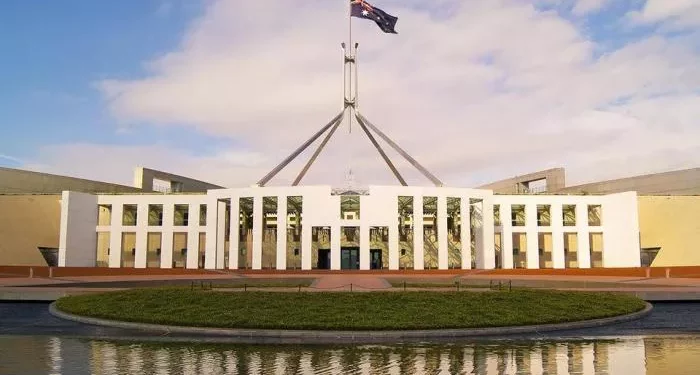The Australian federal government’s recent decision to defer a controversial bill aimed at capping the number of international students has sparked intense debate and criticism. Despite recommendations from a Senate committee to amend the legislation and move forward, the government has chosen to postpone further discussions until late November, raising questions about the viability of the policy and its implications for the nation’s education sector.
Government’s Decision to Delay Legislation
On October 10, the Australian government announced it would again delay the controversial bill intended to cap new international student enrollments at 270,000 for 2025. This decision follows significant backlash from various stakeholders, including opposition parties, educational institutions, and even members of the ruling Labor Party.
The delay means that the government now has only two sitting weeks left in the current parliamentary year to pass the legislation, which is intended to take effect on January 1. However, as the timeline tightens, calls for the bill’s introduction to be postponed to January 2026 are growing louder, with some advocates pushing for a permanent delay.
Reactions to the Proposed Cap
The proposal to cap international student numbers has faced widespread condemnation since it was first introduced in the federal budget in May. Critics have labeled the initiative as “chaotic,” “flawed,” and “not feasible.” Descriptions from within the government have also been harsh, with some representatives claiming it is a reflection of political incompetence.
Tim Pallas, the Treasurer of Victoria, characterized the proposal as a “fundamentally destructive decision,” warning that the cap would have severe adverse effects on the state’s finances, particularly given the significant revenue generated by international education. Pallas’s concerns are echoed by other state and territory governments led by the Australian Labor Party (ALP), who have also expressed their disapproval of the cap.
Opposition from Educational Institutions
The university sector, a key stakeholder in this debate, has been particularly vocal against the proposed cap. Given that international students contribute substantially to the revenue of educational institutions, it was expected that the university sector would oppose such a policy. However, the fact that not a single institution submitted a supportive statement during the recent Senate inquiry underscores the extent of this opposition.
Vikkie Thompson, the chief executive of the Group of Eight (Go8), which represents Australia’s oldest and most prestigious universities, voiced strong objections to the proposed cap. In a statement released after the bill’s deferral, Thompson warned that imposing a cap on international students would “destroy Australia’s $50 billion international education sector” and have long-lasting negative impacts on the economy.
Thompson further criticized the government’s approach, stating, “No other multi-billion dollar industry sector would be expected to set budgets for the next 12 months in a context of great uncertainty about a future revenue stream.” She emphasized that delaying or scrapping the legislation is in the nation’s best interest.
Political Landscape and Implications
The political implications of this controversy are significant. The ruling government, facing declining approval ratings and an upcoming election year, is attempting to navigate a policy that threatens to undermine a vital sector of the economy and alienate various constituencies. The pushback from within the government itself suggests a growing rift over the proposed policy and raises questions about the administration’s ability to effectively govern.
Opposition parties have not hesitated to capitalize on the government’s troubles. They have characterized the bill as rife with “incompetency, secrecy, uncertainty, and unfairness.” The Greens party has gone further, calling for the “disastrous” policy to be entirely scrapped.
Economic Considerations
The economic ramifications of capping international student numbers are far-reaching. International education is one of Australia’s largest export industries, contributing significantly to the economy. With thousands of international students entering the country annually, the sector supports not just educational institutions but also local economies through housing, retail, and other services.
The proposed cap threatens to curtail this influx, potentially leading to job losses in sectors that depend on the patronage of international students. The long-term implications could include diminished competitiveness in the global education market as other countries position themselves as more attractive destinations for international students.
The Road Ahead
As the government prepares for further discussions on the bill, stakeholders are calling for a comprehensive review of the proposed cap and its implications. Many are urging the government to engage in meaningful dialogue with educational institutions and other affected parties to develop a more sustainable approach to international student enrollment.
The ongoing uncertainty surrounding the legislation has left many in the education sector apprehensive about their future. Educational institutions are grappling with how to plan for the coming years amid an unpredictable policy environment that could drastically alter the landscape of international education in Australia.
Conclusion
The debate over capping international student numbers highlights the complex intersection of politics, economics, and education in Australia. With significant opposition from both within the government and the education sector, the proposed policy faces an uphill battle for acceptance.
As the government prepares to revisit the bill, it is crucial to consider the long-term impacts on one of Australia’s most vital industries. By fostering an environment that supports international education, Australia can ensure continued growth and success in this sector, ultimately benefiting the economy and society as a whole.
Related Topics:



















